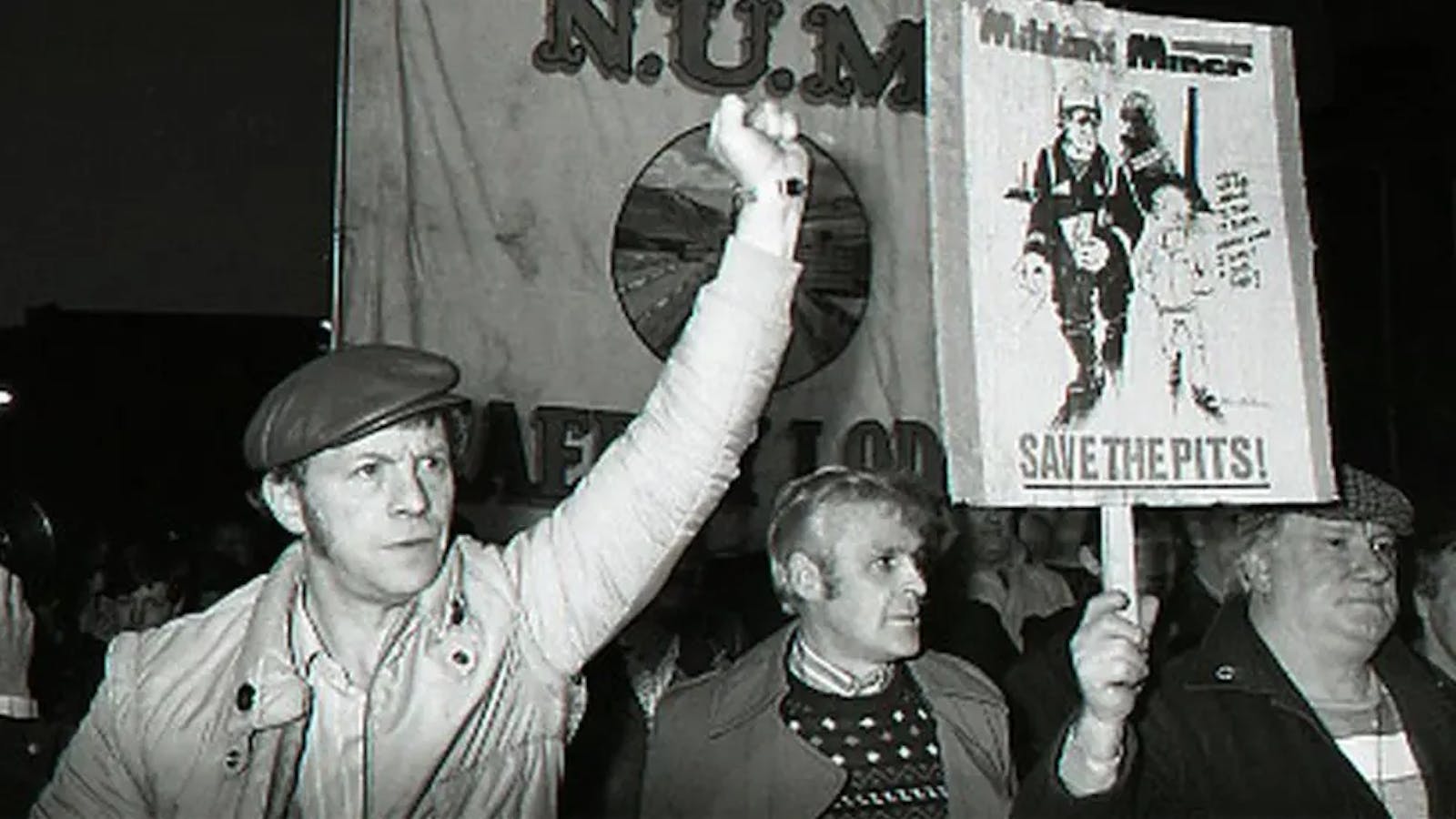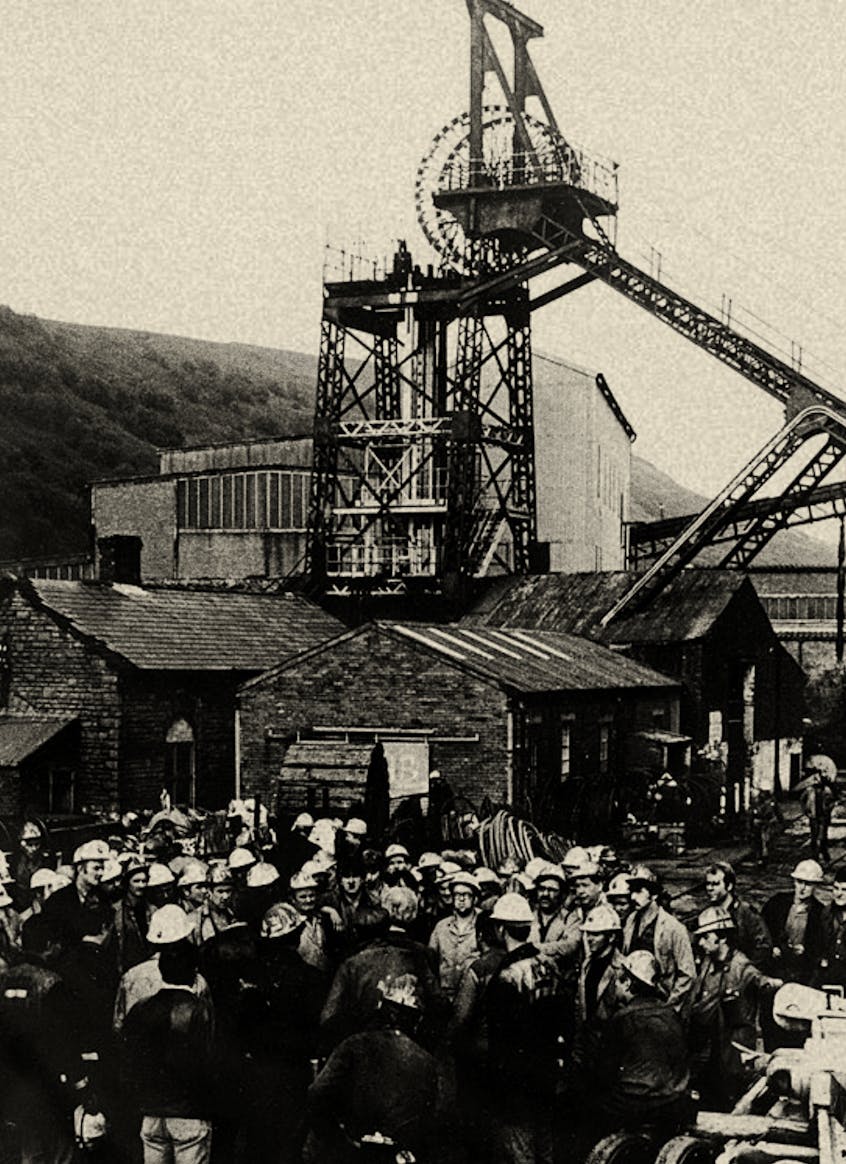Last year, I wrote about the impact of an unjust energy transition in the 1980s on communities in Wales and across the United Kingdom. I urged that the labour movement and a Labour government must show there is a better way to deal with economic change. It is therefore a meaningful win, that with the Clean Energy Jobs Plan the mistakes of the past will not be repeated.
In 1983, as Britain went to the polls, then Labour leader Neil Kinnock warned the British public of what a Margaret Thatcher victory would mean for the UK.
“If Margaret Thatcher wins on Thursday; I warn you not to be ordinary. I warn you not to be young. And I warn you not to grow old”.
Neil Kinnock [1]
His warning that the radical policies promised by the Conservatives would destroy communities, industries and livelihoods, was correct. In the coal mining communities of Wales and across the UK, the government of the day made a calculated choice to inflict economic harm on its own citizens. I saw the effect on an industry that had employed so many of my own family.
In response, the labour movement organised one of the largest protest movements in British history. The miners’ strike of the 1980s was one of the defining moments of the 20th century in the UK. It offered an alternative path, which would protect mining communities from the disruption caused by the shift away from coal. Yet ultimately it was defeated and instead served as a grim warning of what happens if an industrial transition is unjust.
Coalmining was by no means a glamorous occupation. It was hard, badly paid work in a polluted working environment that offered workers little opportunity to pursue a better standard of living. For those living in communities impacted by the coal industry, things were no better. In 1966, a colliery spoil tip which the National Coal Board had failed to properly maintain, collapsed onto a school in the community of Aberfan, just south of Merthyr, killing 28 adults and 116 children [2]. I attended the commemoration in 2016, and time had not eased the pain of those who lost so much because of that tragedy.

The miners’ strike was for these communities and was supported in turn by these communities. Across Wales some 22,000 mine workers [3] went on strike. As incomes disappeared overnight, community groups, primarily led by women, sprung up to support and feed miners, while groups such as ‘Lesbians and Gay Men Support the Miners’ (LGSM) organised to send miners financial aid.
But, over the next year the Thatcher government employed underhand and often illegal measures to force miners back to work. Strike funds and the bank accounts of the National Union of Mineworkers (NUM) were frozen, and brutal violence was used by the police in places like Orgreave. As the strike approached a full year, nearly half of workers across the UK had been forced back to work. But in south Wales, only 6% of the workforce had broken the strike. It was the area which held on the longest and was the only area of the country which fully returning to work under the instruction of the NUM [4]. It was witnessing the events of that hard time from 1984-5 that brought me into Labour politics.
The policies which governed the transition away from coal failed mining communities. This period of our history should be remembered, for the courage shown by workers and mining towns, and as a lesson for the future. In the coming years the UK economy will change in a way that it has not since the 1980s. Industries in the UK, such as oil and gas in the North Sea, manufacturing, and the steel industry will go through their own transitions, and we urgently need to approach this in a way that does not repeat the mistakes of the past. This means proper planning to ensure that communities which rely on these industries are supported through their respective transitions. Crucially, unlike in the 1980s, government needs to treat unions as their primary stakeholders.
Last year, we saw how this can work in practice when the UK’s last coal fired power station was switched off, as a result of a long-term plan announced by the Labour government in 2009. This long-term, strategic planning provided space for unions, business and government to develop an exit strategy that ensured workers had certainty about their future. This process has been held up by the TUC [5] as an example for others to follow in the net zero transition. Contrast this with the closure of the blast furnaces at the UK’s largest steelworks in Port Talbot, Wales, where almost 3,000 workers were made redundant last year as part of the Conservatives’ so-called shift to green steel production. This decision was led by the steel industry with no input from the union movement and was overseen by a government with no real long-term plan for the Port Talbot community’s future.
Today, Wales has its own government and the chance to do things better, to shape our own destiny. Successive Welsh Labour governments have placed inclusive economic growth at the heart of our policies, actively choosing to seek growth within our foundational economy. It’s not just government setting the direction, in places like the slate quarrying town of Blaenau Ffestiniog, communities have taken control of their own energy infrastructure through cooperatives, showing what a just transition really looks like.
The miners’ strike demonstrated what happens when a transition to a new economy is unjust. Communities were broken up, and livelihoods were taken away. But today it is Labour in government. We are a party established to provide political representation to the very communities who could face the worst of further economic decline.
We have a firm imperative to get this opportunity right. Through early work alongside affected workers, their unions and their communities, we must ensure that the mistakes of the 1980s are not replicated in the years to come.
References
[1] Kinnock, N. (1983) On the Prospect of a Conservative Re-election, speech at Bridgend, 7 June. Available at: https://www.margaretthatcher.org
[2] Austin, T. (1967) Aberfan: The Story of a Disaster. London: Hutchinson & Co.
[3] BBC News (2023) “How did the 1980s miners’ strike affect Wales?”. Available at: https://www.bbc.co.uk/news/uk-wales-68205379
[4] Ibid.
[5] Stewart, C. (2024) 'Last UK Coal Plant Closes and Successfully Redeploys Workforce', Trades Union Congress, 26 September. Available at: https://www.tuc.org.uk/blogs/last-uk-coal-plant-closes-and-successfully-redeploys-workforce


